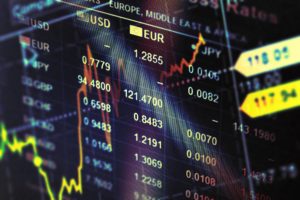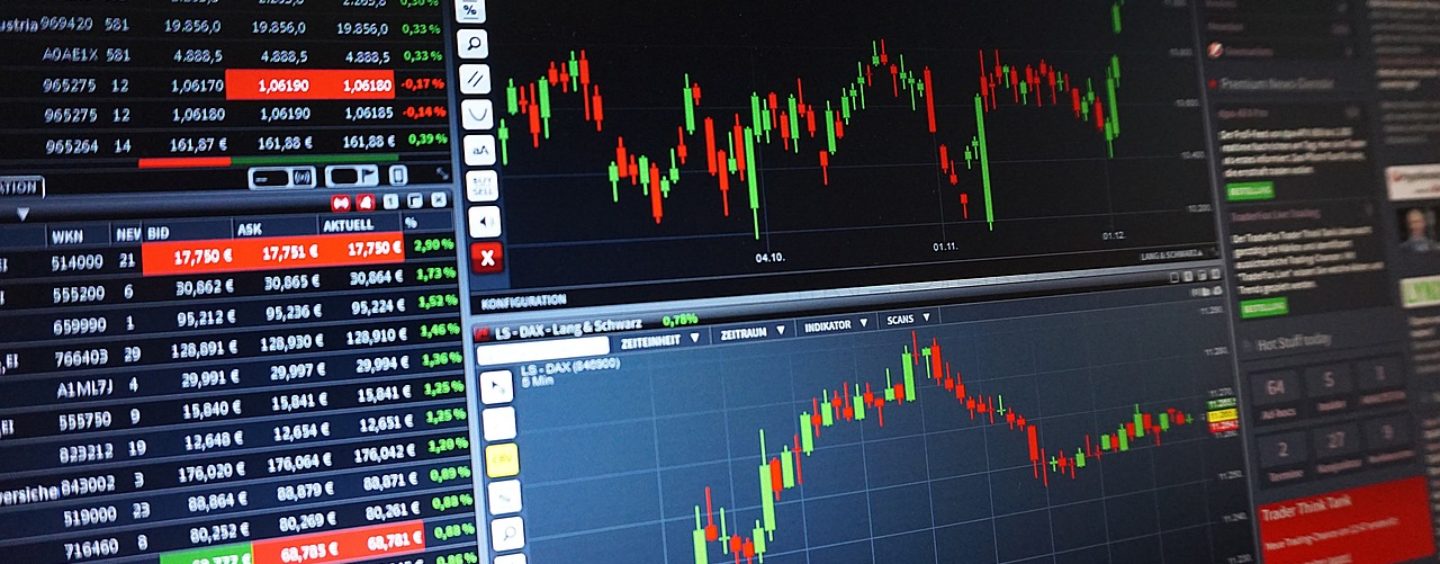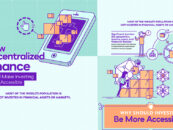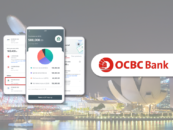Social trading is a new way of trading which involves the use of financial social networks as the major information source for making financial decisions. On these platforms, users can compare and copy trades, techniques and strategies of advanced or professional traders to generate profits.

Image by ESB Professional via Shutterstock.com
Social trading introduces a new way of finding and analyzing financial data, and integrates social indicators from trading data-feeds of others traders.
The concept is particularly appealing to those with limited financial knowledge who are provided with the ability to trade alongside more experienced traders, interact with and learn from them. Some have claimed that social trading shortens the learning curve since traders trade online with the help of others.
Popular social trading platforms include European eToro, a social trading and multi asset brokerage company with registered offices in Cyprus, Israel and the UK, ZuluTrade, a Greek company that operates an online and mobile social and copy trading platform, and Tradeo, an open social trading network headquartered in Cyprus.
Forex social trading

Image by isak55 via Shutterstock.com
In the area of forex social trading, a few platforms stand out in Asia. InstaForex has one of the fastest growing customer bases worldwide. The system enables users to follow successful forex traders and copy their trades on a set ratio.
LiteForex, which started in 2005 with a strong focus on the Asia Pacific market, has quickly become a global contender. The social trading platform allows users to automatically duplicate the best trades from other successful traders, share information and communication live with experts.
Another platform that isn’t forex-specific but nevertheless worth mentioning is Ayondo, a European group with a presence in Singapore. Ayondo probably has one of the widest ranges of trading instruments, which includes forex, stocks, indices, bonds, interest rates and commodities.
Ayondo, which acquired the TradeHero brand in November 2016 to expand its footprint in the region, is currently working on deal that would make it the first fintech firm to be listed on the Singapore Exchange.
Another forex platform is alpari. You can read more on alpari review here about how to trade forex.
Copenhagen-headquartered Tradeworks opened 2014 a Singapore office. The firm has been actively growing its footprint in the auto trading market and recently renewed a partnership with Indonesia’s largest forex broker PT Monex as its representative and distribution partner.
The firm says that Indonesia’s market for retail forex brokerage has been expanding rapidly and will be a vital development area alongside Malaysia for them in Southeast Asia.
DIY algorithmic trading
Tradeworks, a firm that develops cloud-based trade automation software for individual traders, has created a product that allows users to build algorithmic trading programs without writing a single line of code.
Instead, the platform uses a drag-and-drop system that lets traders easily design and deploy automated trading strategies based on well-known indicators and oscillators.

Image by BEST-BACKGROUNDS via Shutterstock.com
Algorithmic trading is the process of using computer programs to follow a defined set of instructions for placing a trade, and allow for the generation of profits at a speed and frequency that’s impossible for a human trader.
Tradeworks’ template strategies are designed to help traders understand how algorithms work and offer a simple and effective way for traders to get introduced to algorithmic trading. The comprehensive list of ready-made template strategies gives traders and easy entry to algo trading.
These strategies are shared on the Template Strategies Library, a new feature introduced earlier this year, and offered for free to other traders to use. This open library allows traders to track the performance of the best strategies in real time and rank them based on profitability. Once copied, strategies can be edited and tweaked as often as necessary in order to achieve optimal profitability.
Disruptive technologies including artificial intelligence, virtual reality and robo-advising, are poised to transform the trading world. Industry experts believe that automation and algorithm-driven trading will continue to rise and eventually displace its human manager counterparts.
For Kelly Elmstrom, the director of marketing and events at Quantopian, “the biggest trend in fintech is going to be algorithms disrupting [Exchange Traded Funds].”
“Those ETFs are cash cows and each one is replaceable by a near-free algorithm. Even the robo-advisors are high-priced compared to a simple algorithm and a low-fee brokerage,” she said.
Featured image: Charts via Pixabay.








